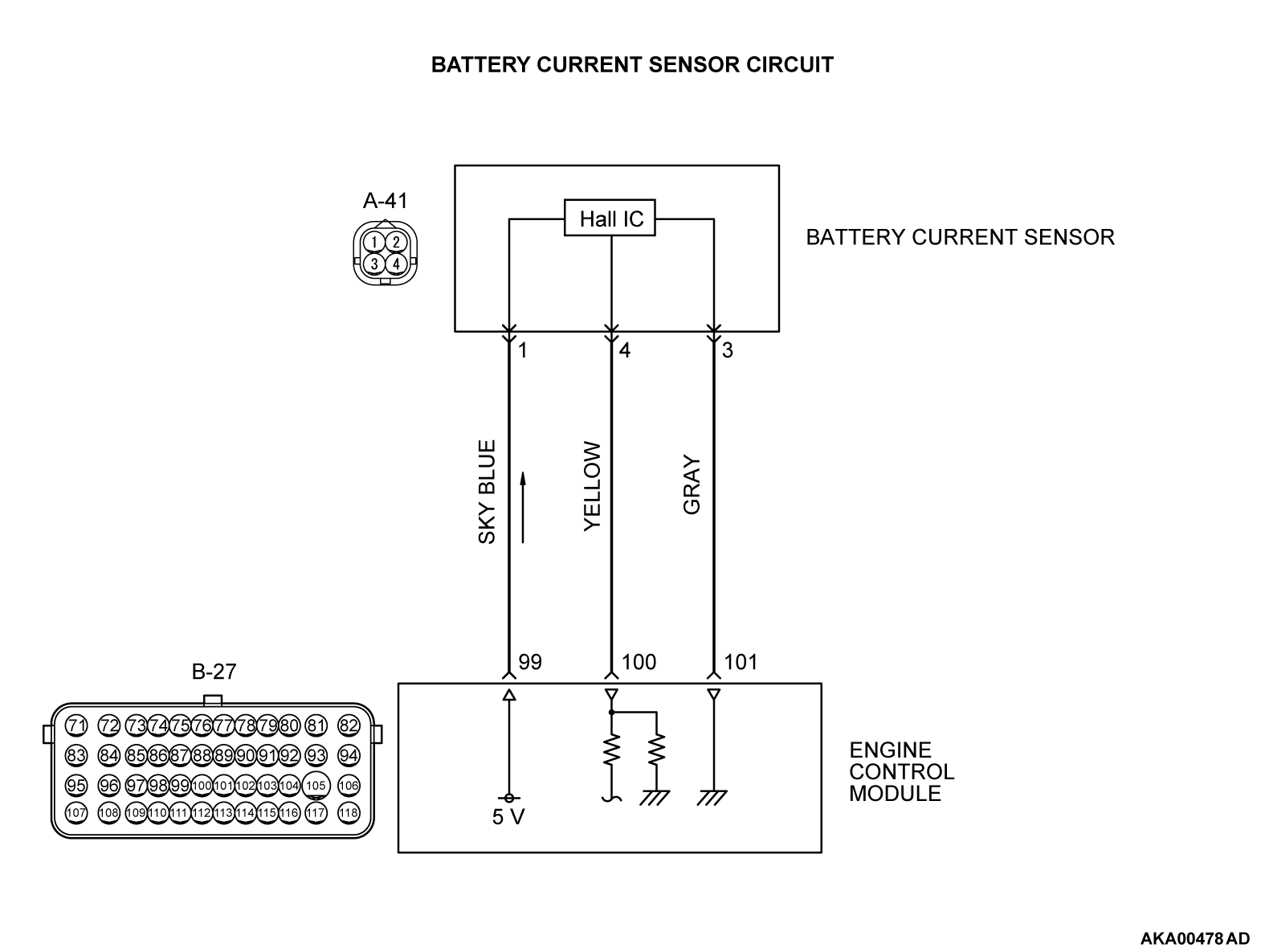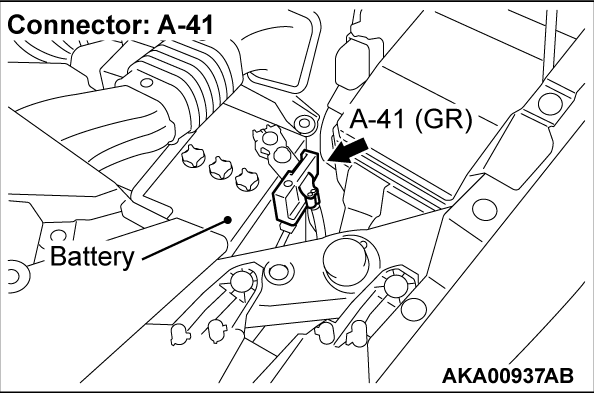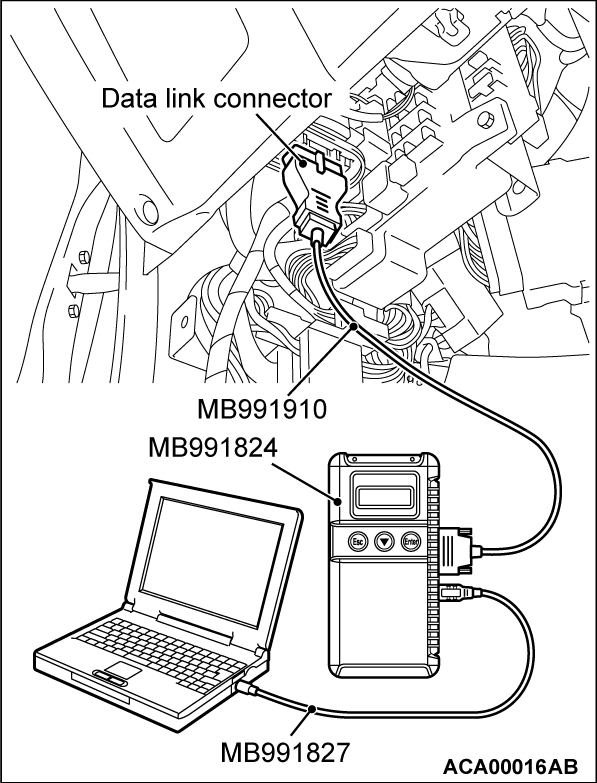DTC P1609: Battery Current Sensor Range/Performance
CIRCUIT OPERATION
- A 5-volt voltage is supplied to the battery current sensor power terminal (terminal No. 1) from the ECM (terminal No. 99). The ground terminal (terminal No. 3) is grounded with ECM (terminal No. 101).
- A voltage that is proportional to the battery current is sent to the ECM (terminal No. 100) from the battery current sensor output terminal (terminal No. 4).
TECHNICAL DESCRIPTION
- The battery current sensor outputs a voltage which corresponds to the battery current.
- The ECM checks whether this voltage is within a specified range.
DESCRIPTIONS OF MONITOR METHODS
Check whether the battery current sensor output voltage changes or not during the engine running.
DTC SET CONDITIONS
Check Condition
- Engine speed is more than 200 r/min.
Judgment Criterion
- When there is no change in battery current sensor output voltage.
FAIL-SAFE AND BACKUP FUNCTION
- Prohibits generator output suppression control against current consumers. (Operates as a normal generator.)
TROUBLESHOOTING HINTS (The most likely causes for this code to be set are:)
- Battery current sensor failed.
- Harness damage.
- Connector damage.
- ECM failed.
DIAGNOSIS
Required Special Tools:
- MB991958: Scan Tool (M.U.T.-III Sub Assembly)
- MB991824: V.C.I.
- MB991827: USB Cable
- MB991910: Main Harness A
- MB992110: Power Plant ECU Check Harness
STEP 1. Check battery itself
Is the check result normal?
STEP 2. Check battery test
Is the check result normal?
STEP 3. Check battery current sensor itself
Is the check result normal?
STEP 4. Check harness connector A-41 at battery current sensor and harness connector B-27 at ECM for damage.
Are the harness connectors in good condition?
STEP 5. Check for harness damage between battery current sensor connector A-41 (terminal No. 1) and ECM connector B-27 (terminal No. 99).
STEP 6. Check for harness damage between battery current sensor connector A-41 (terminal No. 3) and ECM connector B-27 (terminal No. 101).
STEP 7. Check for harness damage between battery current sensor connector A-41 (terminal No. 4) and ECM connector B-27 (terminal No. 100).
STEP 8. Using scan tool MB991958, read the diagnostic trouble code (DTC).
(1) Connect scan tool MB991958 to the data link connector.
(2) Start the engine and run at idle.
(3) After the DTC has been deleted, read the DTC again.
(4) Turn the ignition switch to the "LOCK" (OFF) position.
Is the DTC P1609 set?
STEP 9. Using scan tool MB991958, read the diagnostic trouble code (DTC).
(1) Connect scan tool MB991958 to the data link connector.
(2) Start the engine and run at idle.
(3) After the DTC has been deleted, read the DTC again.
(4) Turn the ignition switch to the "LOCK" (OFF) position.
Is the DTC P1609 set?
 Retry the troubleshooting.
Retry the troubleshooting. The inspection is complete.
The inspection is complete.![[Previous]](../../../buttons/fprev.png)
![[Next]](../../../buttons/fnext.png)




